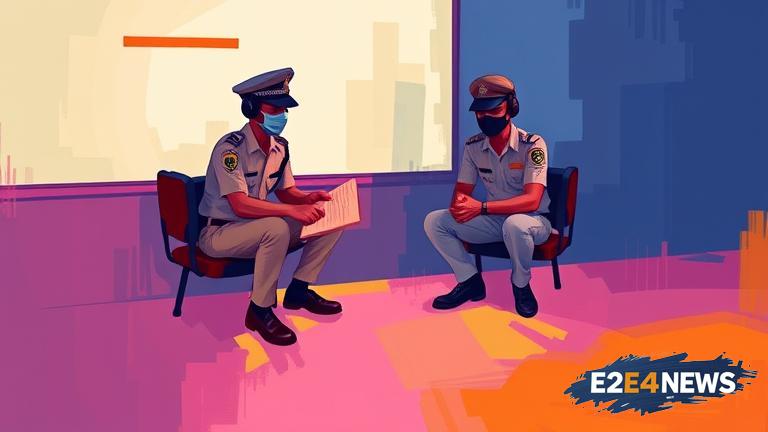The Bar Council of India (BCI) has recently written to the Delhi Lieutenant Governor, requesting the withdrawal of a notification that allows police officials to testify from police stations. This move has sparked debate among legal professionals, with some arguing that it undermines the principles of fairness and transparency in the justice system. The notification in question was issued by the Delhi government, aiming to reduce the burden on police personnel by enabling them to testify from their stations rather than attending court proceedings. However, the BCI has expressed concerns that this practice could lead to biased testimony and compromise the integrity of the legal process. The council argues that allowing police officials to testify from police stations could create an environment where they feel more comfortable providing testimony that favors the prosecution, potentially at the expense of the accused’s rights. Furthermore, the BCI is worried that this practice may not provide the same level of scrutiny and cross-examination that occurs in a courtroom setting, which is essential for ensuring that justice is served. The BCI’s letter to the Lieutenant Governor highlights the importance of maintaining the integrity of the legal system and ensuring that all testimony is given under oath and subject to cross-examination. The council believes that the current practice of police officials testifying from police stations may not meet these standards, and therefore, it should be withdrawn. The issue has also raised questions about the role of technology in the justice system, with some arguing that video conferencing could be used to facilitate testimony while maintaining the integrity of the process. However, others are concerned that relying on technology could create new challenges, such as ensuring the authenticity of testimony and preventing external influences. The BCI’s stance on this matter reflects its commitment to upholding the principles of justice and ensuring that the legal system remains fair and transparent. The council’s concerns are not limited to the potential for biased testimony but also extend to the broader implications of this practice on the justice system as a whole. As the debate surrounding this issue continues, it is essential to consider the potential consequences of allowing police officials to testify from police stations and to weigh these against the need to find efficient and effective ways to manage the justice system. The BCI’s letter to the Lieutenant Governor is a significant development in this debate, and its outcome will likely have important implications for the future of the justice system in India. In addition to the BCI, other legal professionals and organizations have also expressed concerns about the notification, citing similar worries about fairness and transparency. The issue has sparked a wider discussion about the need for reform in the justice system, with many arguing that it is essential to find ways to improve efficiency while maintaining the integrity of the process. The use of technology, such as video conferencing, is seen as one potential solution, but it is crucial to ensure that any such solutions are implemented in a way that prioritizes fairness and transparency. The BCI’s efforts to address this issue reflect its ongoing commitment to promoting the interests of the legal profession and upholding the principles of justice. As the situation continues to unfold, it will be important to monitor developments and consider the potential implications of any changes to the justice system. The BCI’s stance on this matter is likely to influence the broader debate about the future of the justice system in India, and its outcome will have significant implications for legal professionals, the accused, and the general public. The council’s concerns about the potential for biased testimony and the need to maintain the integrity of the legal process are shared by many in the legal community, and its efforts to address this issue are seen as an important step towards promoting fairness and transparency in the justice system. Ultimately, the decision on whether to withdraw the notification will depend on a careful consideration of the potential consequences and the need to balance efficiency with the principles of justice. The BCI’s letter to the Lieutenant Governor is a significant contribution to this debate, and its outcome will be closely watched by legal professionals and the general public alike.
